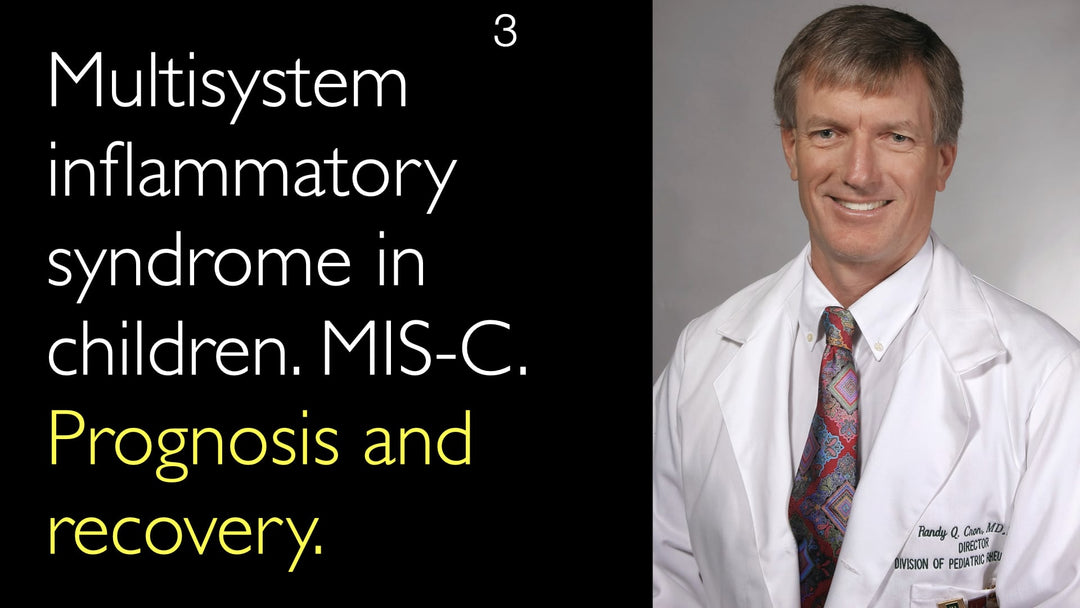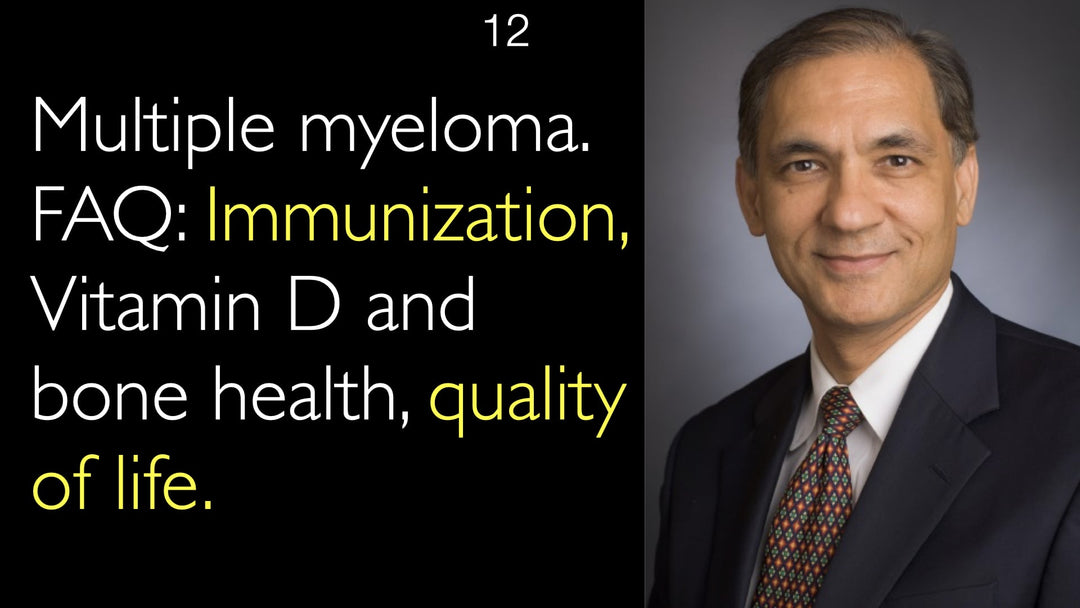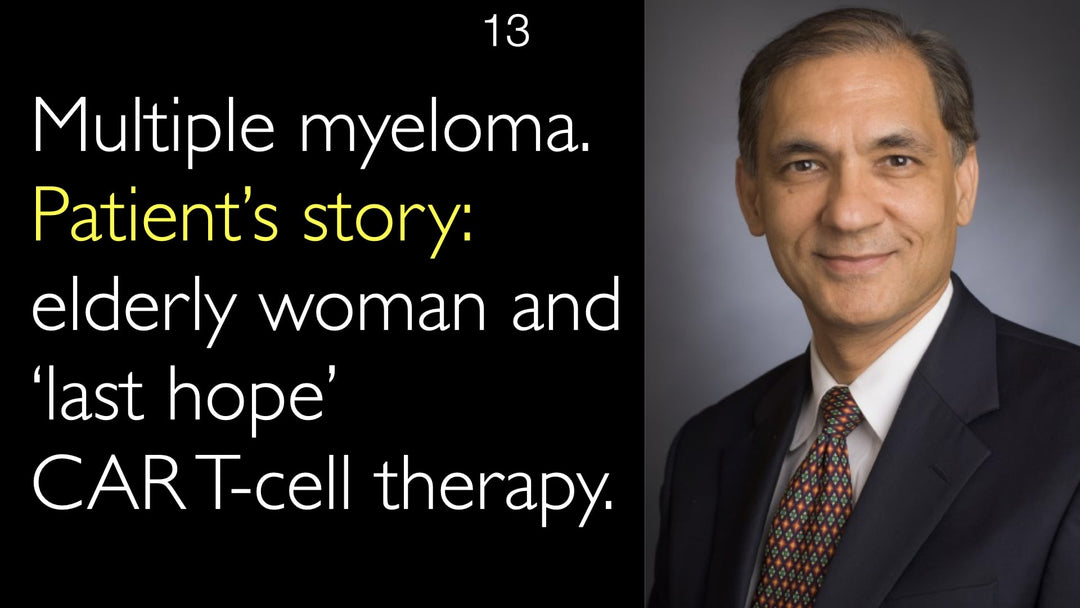Leading expert in pediatric rheumatology, Dr. Randy Cron, MD, explains the prognosis and recovery for children with Multisystem Inflammatory Syndrome (MIS-C). He details the typical hospital course, cardiac outcomes, and long-term follow-up. Most children recover well with treatment, though a small mortality risk exists.
MIS-C Prognosis and Long-Term Recovery in Children
Jump To Section
- MIS-C Hospital Recovery and Discharge
- Cardiac Involvement and Resolution
- Long-Term Prognosis and Outlook
- MIS-C Mortality Risk
- Mechanism and Super Antigen Theory
- Full Transcript
MIS-C Hospital Recovery and Discharge
Dr. Randy Cron, MD, describes the typical hospital course for children with Multisystem Inflammatory Syndrome in Children (MIS-C). He notes that while children often present very sick, their recovery in the hospital is frequently rapid. The median hospital stay is usually less than one week. Many patients require care in the intensive care unit and receive intravenous immunoglobulin (IVIG) treatment. Despite the severe initial presentation, Dr. Cron observes that children are discharged much quicker than one might expect.
Cardiac Involvement and Resolution
Cardiac issues are a primary concern in MIS-C, similar to Kawasaki disease. Dr. Randy Cron, MD, explains that some children develop coronary artery enlargement. However, he clarifies that true aneurysms are less common in MIS-C compared to classic Kawasaki disease. The vast majority of these coronary changes resolve quickly after treatment with IVIG. Standard follow-up includes a cardiology appointment approximately one month after hospital discharge to confirm the heart vessels have returned to normal.
Long-Term Prognosis and Outlook
The long-term prognosis for MIS-C appears to be very good based on current data. Dr. Randy Cron, MD, states that most children do exceptionally well after recovery. Anecdotal evidence from his experience and colleagues worldwide indicates these children do not typically return to the hospital for other related conditions. This positive outcome contrasts with the "long COVID" symptoms sometimes seen in adults and children after a direct COVID-19 infection. Dr. Randy Cron, MD, emphasizes that MIS-C is a post-infectious immune response, not an active infection.
MIS-C Mortality Risk
Despite the generally positive outcomes, Dr. Randy Cron, MD, acknowledges that MIS-C is a serious condition. He reports that the mortality rate for MIS-C is estimated to be in the 1% to 2% range. This risk was higher early in the pandemic, but it has improved as physicians have gained more experience in diagnosing and treating the syndrome. The interview with Dr. Anton Titov, MD, highlights that while rare, death from MIS-C remains a possibility, underscoring the importance of prompt medical attention.
Mechanism and Super Antigen Theory
Dr. Randy Cron, MD, discusses the leading theory behind what causes the massive immune response in MIS-C. Evidence suggests it may involve a "super antigen" effect. Super antigens are powerful immune triggers that can activate a large number of T cells simultaneously. This rampant T-cell activation is thought to drive the severe inflammation seen in the syndrome. This theory helps explain why MIS-C is a post-infectious complication rather than a direct result of the virus itself.
Full Transcript
Dr. Anton Titov, MD: Regarding the prognosis for those children who had Multisystem Inflammatory Syndrome after COVID-19, or perhaps also that relates to Kawasaki disease, is there any difference in short-term prognosis and long-term prognosis? How long have these children been studied at this point?
Dr. Randy Cron, MD: Yeah, so there hasn't been a whole lot published on the long term. They're starting to come out. Even here in Birmingham, one of our fellows who saw the bulk of these patients has been collecting that data so that we can at least try to get an idea of how these kids do long term.
Dr. Randy Cron, MD: But just anecdotally, I can tell from my colleagues' experience around the world as well, like I said, most of these kids with MIS-C who come in very, very sick are out of the hospital usually within less than a week. Not all of them, but that's just kind of the median or mean stay time. They're in the hospital coming in very sick, but they get out much quicker than you might expect.
Dr. Randy Cron, MD: Many of them go to the intensive care unit and receive IVIG. Some of them do actually get coronary enlargement, like in Kawasaki disease, not as many aneurysms as perhaps we would see with Kawasaki disease or bulging of these vessels.
Dr. Randy Cron, MD: But for the most part, those have all resolved usually right away after receiving IVIG. Not everyone, but the vast majority. These children do see the cardiologist after hospitalization about a month afterwards just to confirm that their coronaries are still okay or that something hasn't changed in the interim.
Dr. Randy Cron, MD: If they do have some kind of faint involvement, they'll see them again. But again, for the most part, these kids have done really well. We have not seen them back at the hospital for other conditions or whatnot.
Dr. Randy Cron, MD: So the prognosis just anecdotally has been very, very good. We'll wait to see longer term if anything comes of this. The biggest concern so far has been the heart because of the similarities to Kawasaki disease, but it really hasn't panned out to be a primary problem.
Dr. Randy Cron, MD: It's perhaps because we're giving IVIG and or steroids, but it's not entirely clear. I would say compared to some of these long haul or symptoms that primarily adults get, but kids can get too with having a COVID infection, doesn't seem to be the case for MIS-C.
Dr. Randy Cron, MD: MIS-C again doesn't seem to be an infection itself, but a post-infectious immune response. Some people think that it may be like a super antigen effect. Super antigens are certain triggers of your immune system that can really ramp up a large set of your T cells, white blood cells that are very important for your general immune responses to everything, particularly memory responses and guiding things like antibody production, etc.
Dr. Randy Cron, MD: Because they do share some features with that, and there's some evidence by looking at subsets of these T cells that they may be activated in a similar fashion as a super antigen. But again, for the most part, and getting into your question here, these kids seem to do rather well.
Dr. Randy Cron, MD: So the prognosis is pretty good. Again, having said that, early on in particular, I think it's gotten better from what we've learned. These kids are rather sick, so you can die from this, and the mortality may be somewhere in the one to 2% ballpark range.







